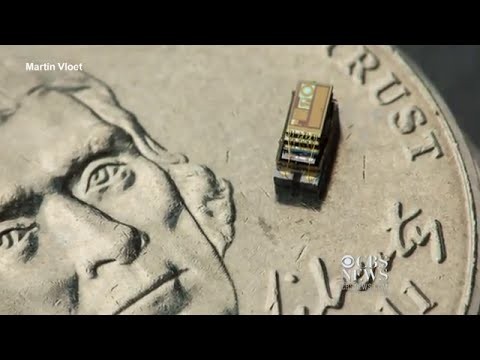The Michigan Micro Mote (MMM) has earned the title as the world's tiniest computer. Smaller than a grain of rice, the 1mm light-powered device is the first complete computer of its size.
The MMM can fit perfectly along the edge of a nickel. It has the volume of around one millimeter cubed.
A "complete" computer system is one that can receive inputted data, process it, make decisions, and then output the data. This was explained by Dr. David Blaauw, computer science professor at the University of Michigan.
Professor Blaauw and his team of five students developed the device. By lowering how much power the MMM needed to function, they minimized the battery's and computer's size.
The team has been developing the tiny computer for a decade, according to Hexus. It uses light to be programmed and charged.
The user uses a high frequency light to transmit data to the MMM. After processing the data the mini CPU uses radio frequencies to send it to another computer.
The MMM contains a Phoenix processor that needs just 500 pico-watts when it is in standby mode. A pico-watt is equal to one trillionth of a watt.
The computer can also charge its battery in a room that contains no sunlight, according to Digital Trends.
The medical industry is interested in using the MMM for various applications. It could perform functions such as reading temperatures, recording ECGs (electrocardiogram) pressures, and taking photos.
In addition, the oil industry also has plans for the mini CPU. It could locate pockets of oil that workers could then collect.
An everyday use of the MMM would be to attach it to items such as wallets or keys, to prevent them from getting lost. The machine's central system could help users to locate the various items.
Super tiny computers have been trending recently. Both Google and Intel recently announced that they are developing computers that plug into TVs and monitors.
The next project of the Michigan researchers is to develop even tinier computers called "smart dust." It could be the next big thing in mini machines



























